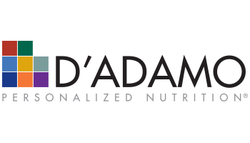Written by Dr. Erin Kinney of KinnCare, a holistic health care center in Arnold, Maryland, the following article ran in our February 2014 newsletter. It is being reposted with Dr. Kinney’s permission.
There may be one “fad diet” that can actually stand its ground.
When I was studying to receive my Doctorate of Naturopathic Medicine at the University of Bridgeport, diet and nutrition were a large part of our curriculum.
We studied the biochemistry of many different foods and diets and looked at their efficacy for optimal health, prevention of disease and weight loss. During my clinical rotations, I implemented many of these diets into patients’ treatment plans, but there was one diet that I saw consistently change people’s lives: The Blood Type Diet.
I remember the first time I read about it: a diet based on the type of blood flowing through my veins? What could that have to do with anything? Well, in actuality the type of blood your heart has been pumping all your life could dictate which foods will decrease your risk for heart disease. In fact, your blood type and its relationship with your body could also be responsible for those extra pounds you can’t seem to lose.
While some criticize The Blood Type Diet, calling it a “fad diet” with little foundation in nutritional history, researchers have actually revealed impressive scientific evidence to support Dr. Peter D’Adamo’s Blood Type Diet.
Let’s start with the basics of the ABO blood grouping system. This system separates blood into four different categories based on specific chemical structures on the surface of each our red blood cells. These structures are called antigens, markers found on the cells of the body that play a large role in the functionality of the immune system. So, Blood Type A has an “A” antigen, Blood Type B has a “B” antigen, Blood Type AB has both “A” and “B” antigens and Blood Type O has no antigens.
How Blood Type and Immune Response Go Hand in Hand
Because of each blood type’s ability to modulate a different set of specific antibodies—the Y-shaped proteins that work to identify foreign bacteria and viruses in the body—someone who is Blood Type A is born with the ability to recognize that this type A antigen is “an approved” part of his or her system. Likewise, this person is also born with the ability to recognize that a type B antigen is not part of his or her system; therefore, the body will view a type B antigen as a potential threat that could be dangerous.
Once the foreigner is known, antibodies attach to the antigens, and a reaction called agglutination occurs. Agglutination is a fancy term for cells clumping together, and in the case of a blood transfusion with the wrong blood type, agglutination can be deadly!
Scientifically speaking, it would seem that these factoids about blood type and how it relates to immunity would be unrelated to dietary recommendations. But as scientists started to examine the various chemical structures in our food, they discovered lectins, sugar-binding protein molecules with structures similar to some antibodies.
A lectin is a type of molecule present in different types of plants and animals. Essentially, lectins are present in most of the foods that we consume. Because lectins are similar in shape to certain antibodies, they can behave in a similar way, causing potentially dangerous reactions with our blood type antigens—depending on one’s blood type.
Remember the agglutination reaction? When you eat a food containing lectins that are not compatible with your blood type, that same agglutination reaction occurs on a much smaller scale. Now, this does not mean that eating the wrong food could cause an immediate deadly reaction, but eating foods with the wrong lectins over a lifetime can increase your risk for different diseases, cause premature aging and simply make you feel bad. On the flip side, eating the right foods for your blood type can actually lower your risk for disease, slow down the aging process and make you feel like a million dollars!

About Dr. Kinney
Dr. Erin Kinney is a Naturopathic Doctor whose journey into holistic medicine began with her personal interests in nutrition, mind-body medicine and women’s health. She studied psychology and business at Vanderbilt University and then went on to earn her doctorate of Naturopathic Medicine from the University of Bridgeport College of Naturopathic Medicine. She is trained in personalized nutrition, botanical therapy, homeopathy and craniosacral therapy. Her practice focuses on healing the whole person through individualized treatments and teaching the principles of healthy living and preventative medicine. Dr. Kinney and her husband, Dr. John Koloski, own KinnCare, a holistic health care center in Arnold, Maryland that provides professional chiropractic, naturopathic medicine, and physical therapy services to patients.


